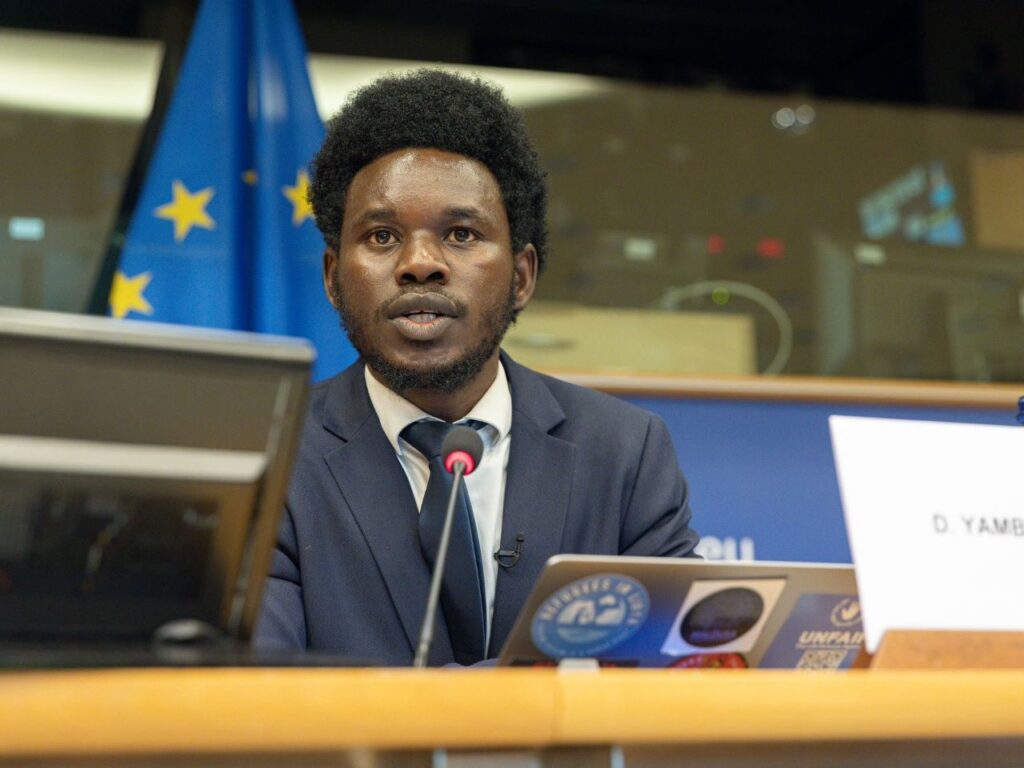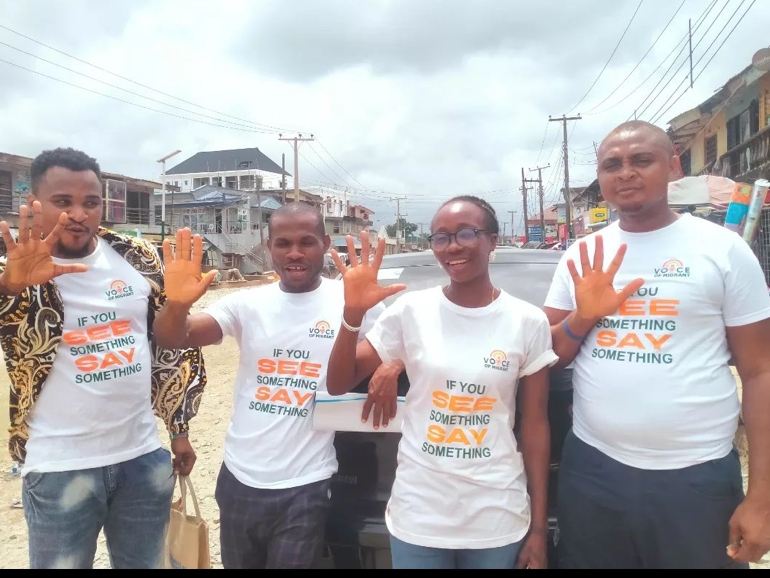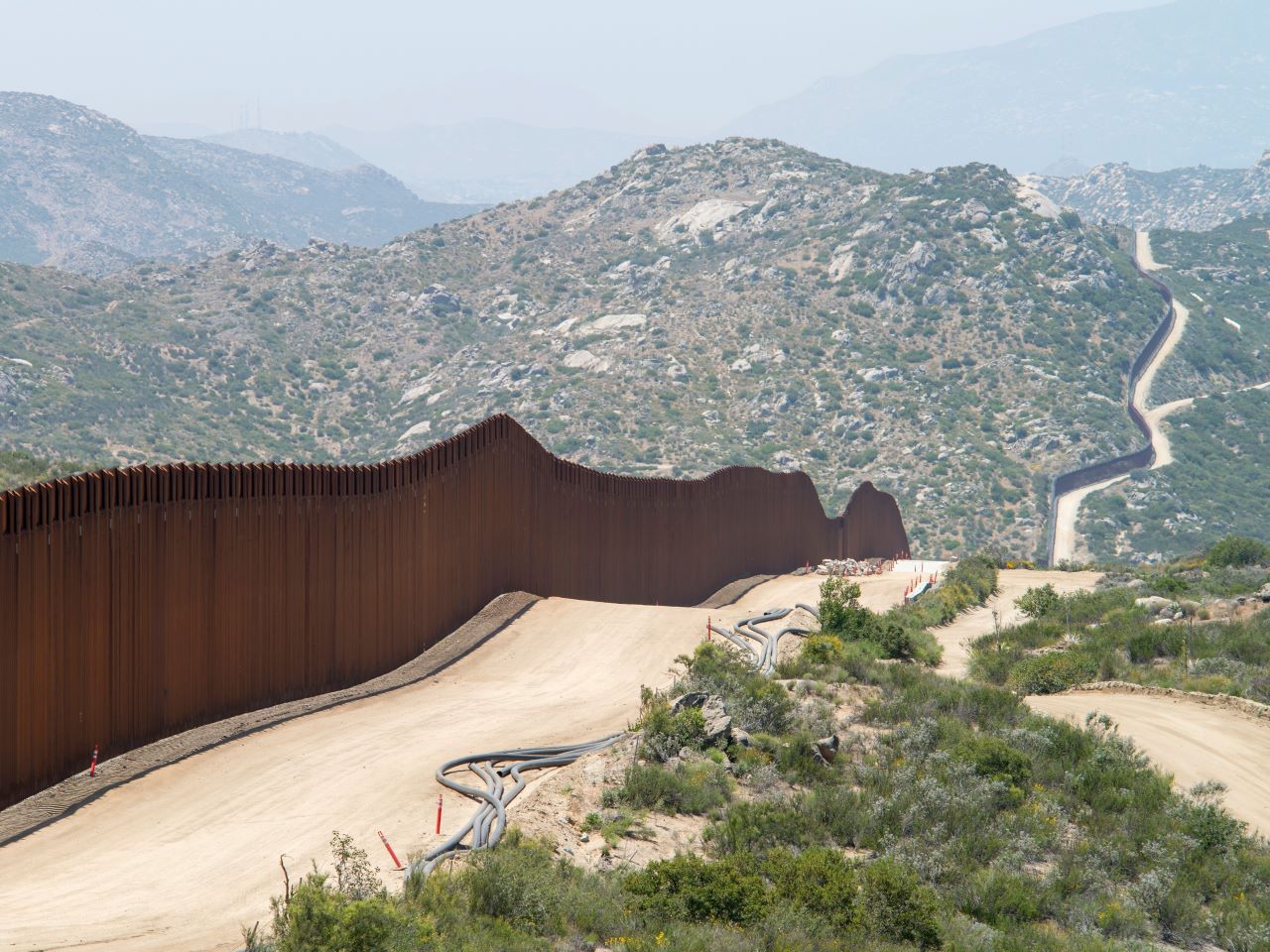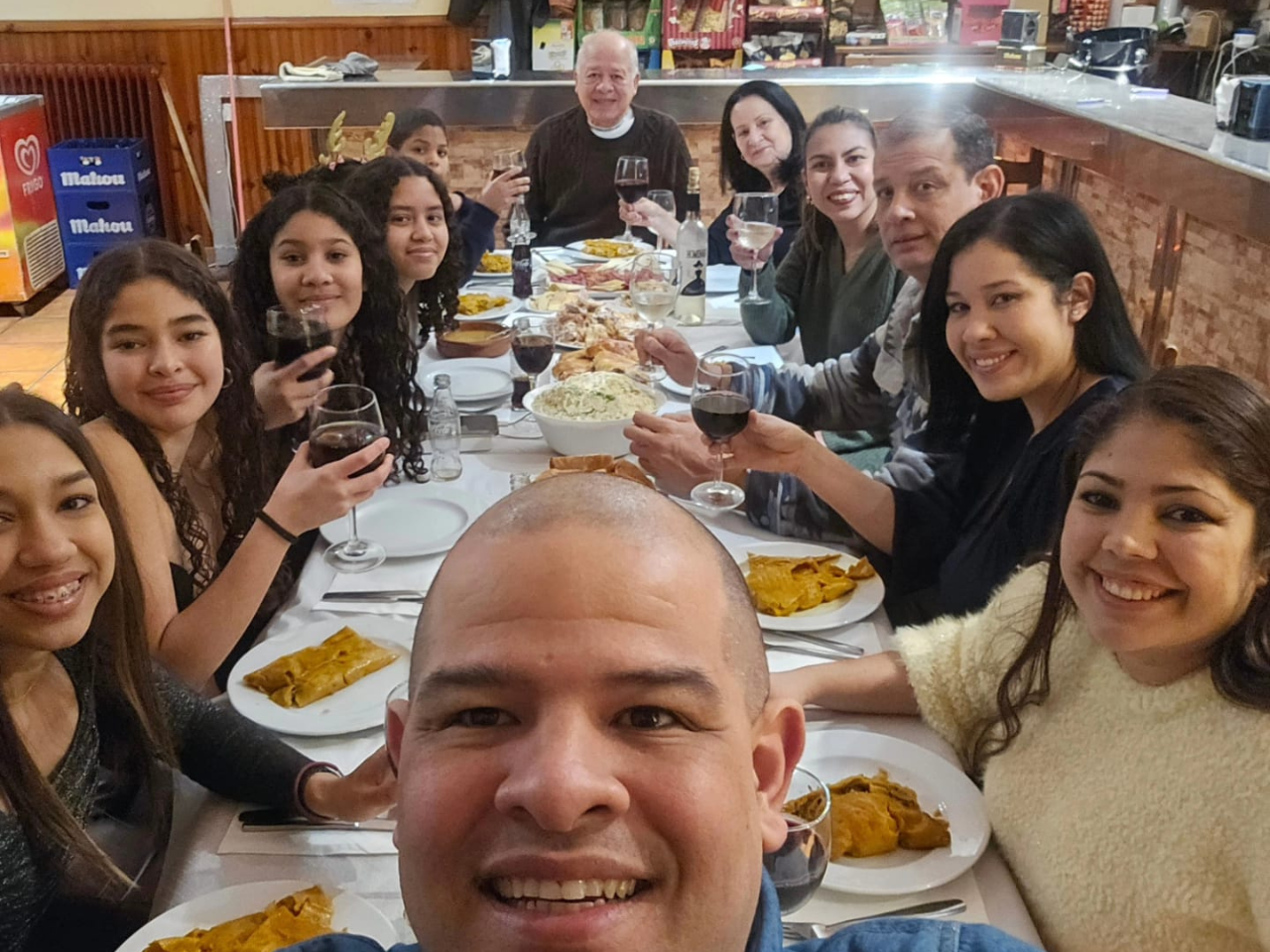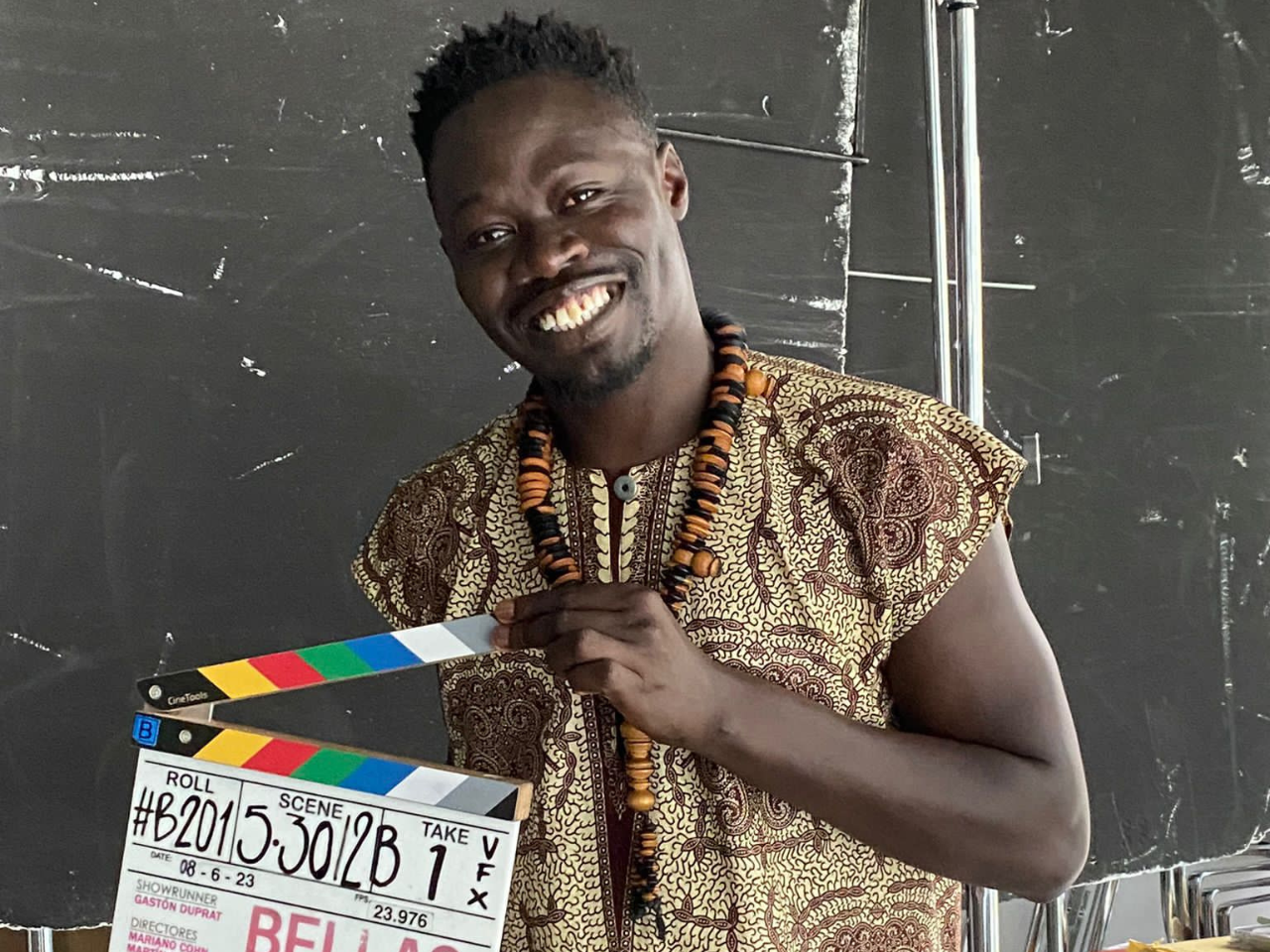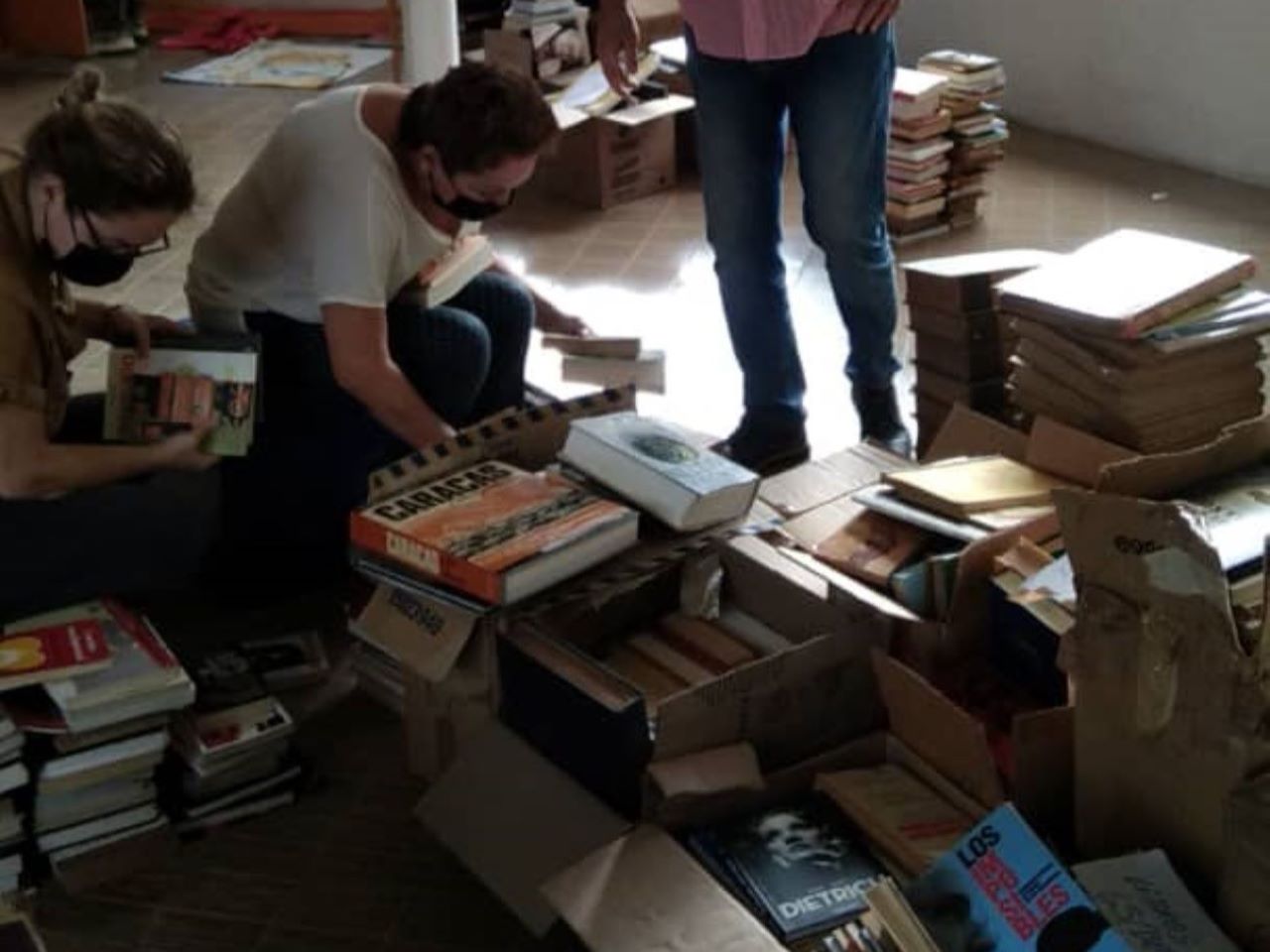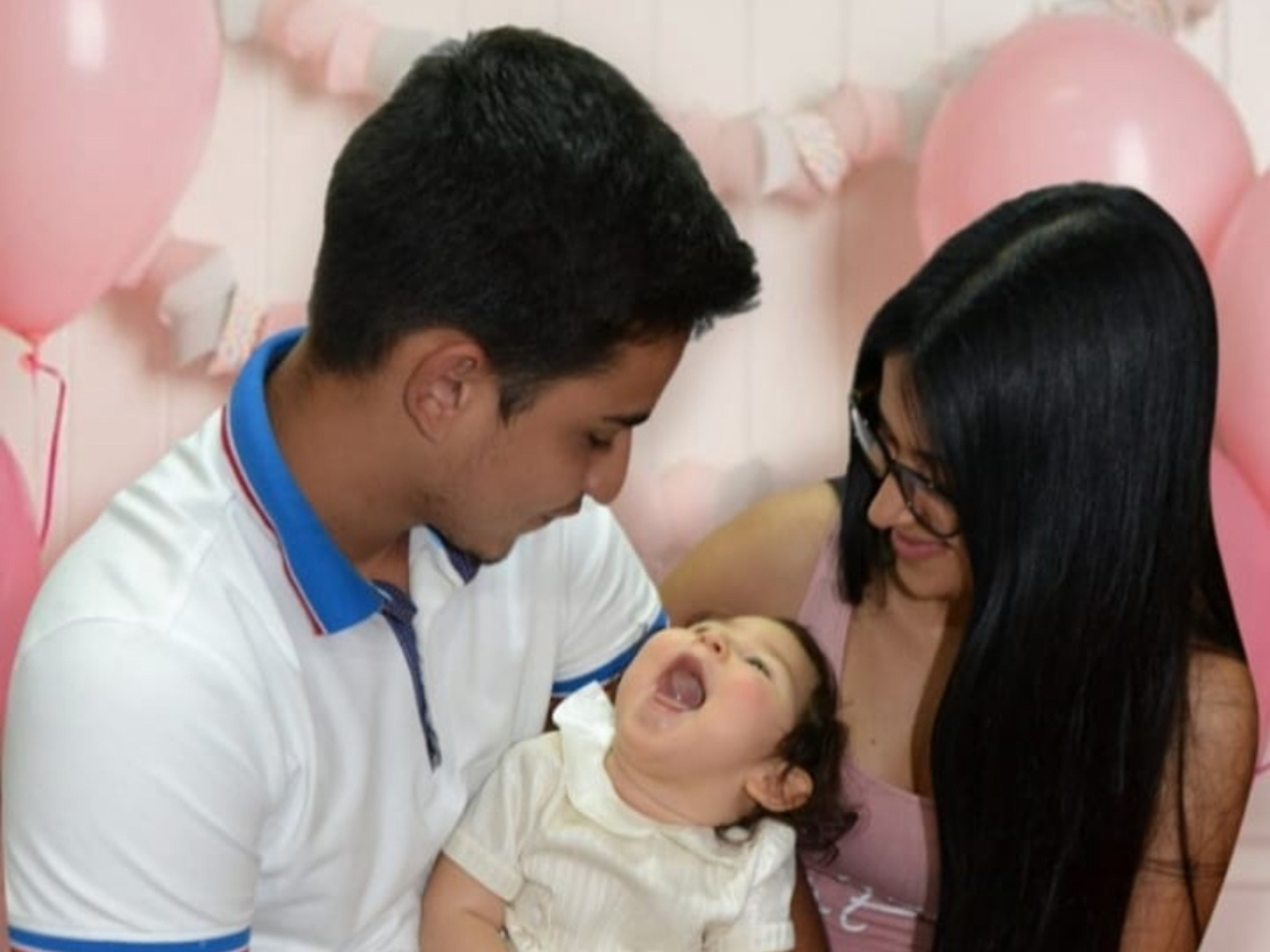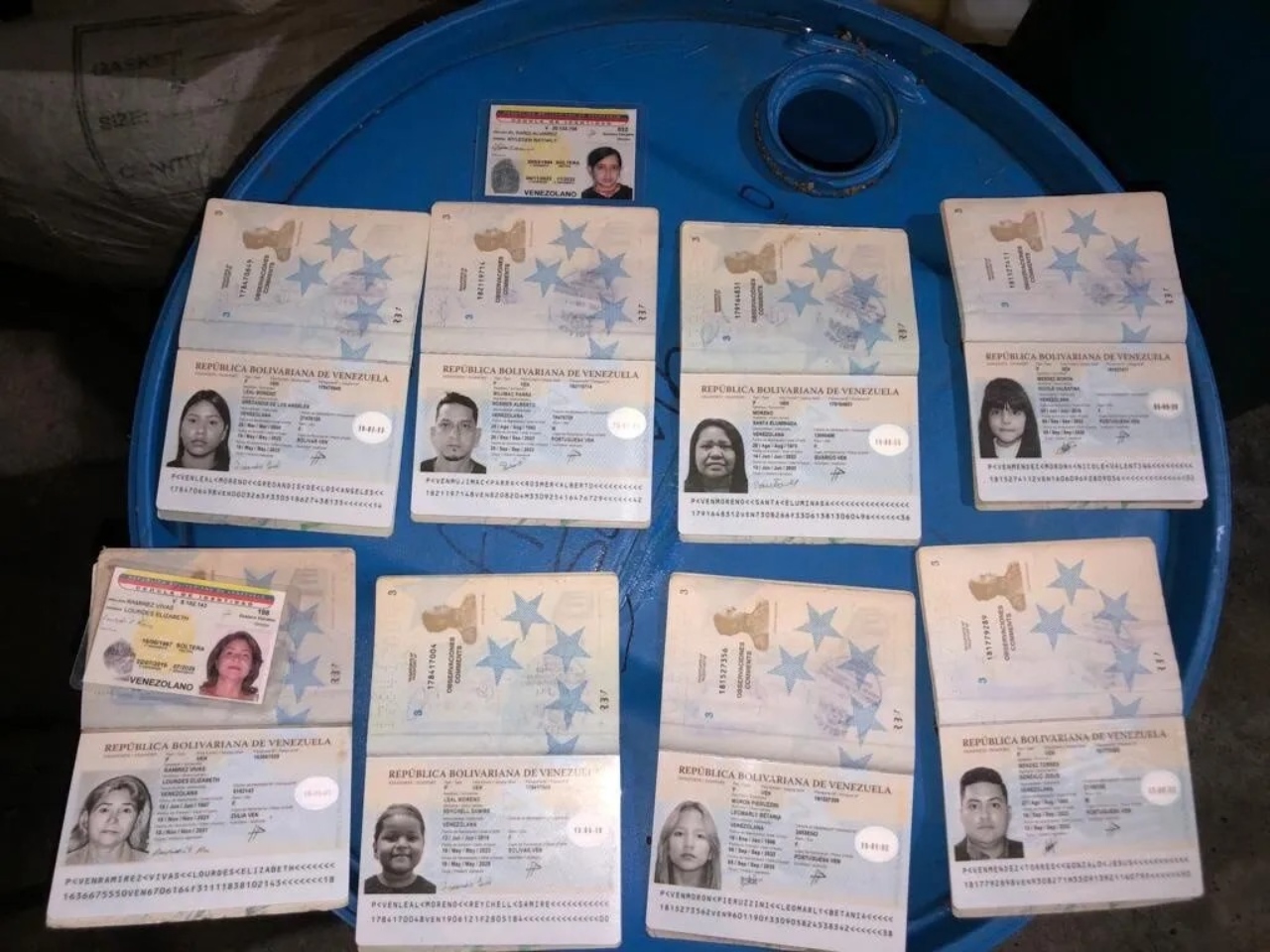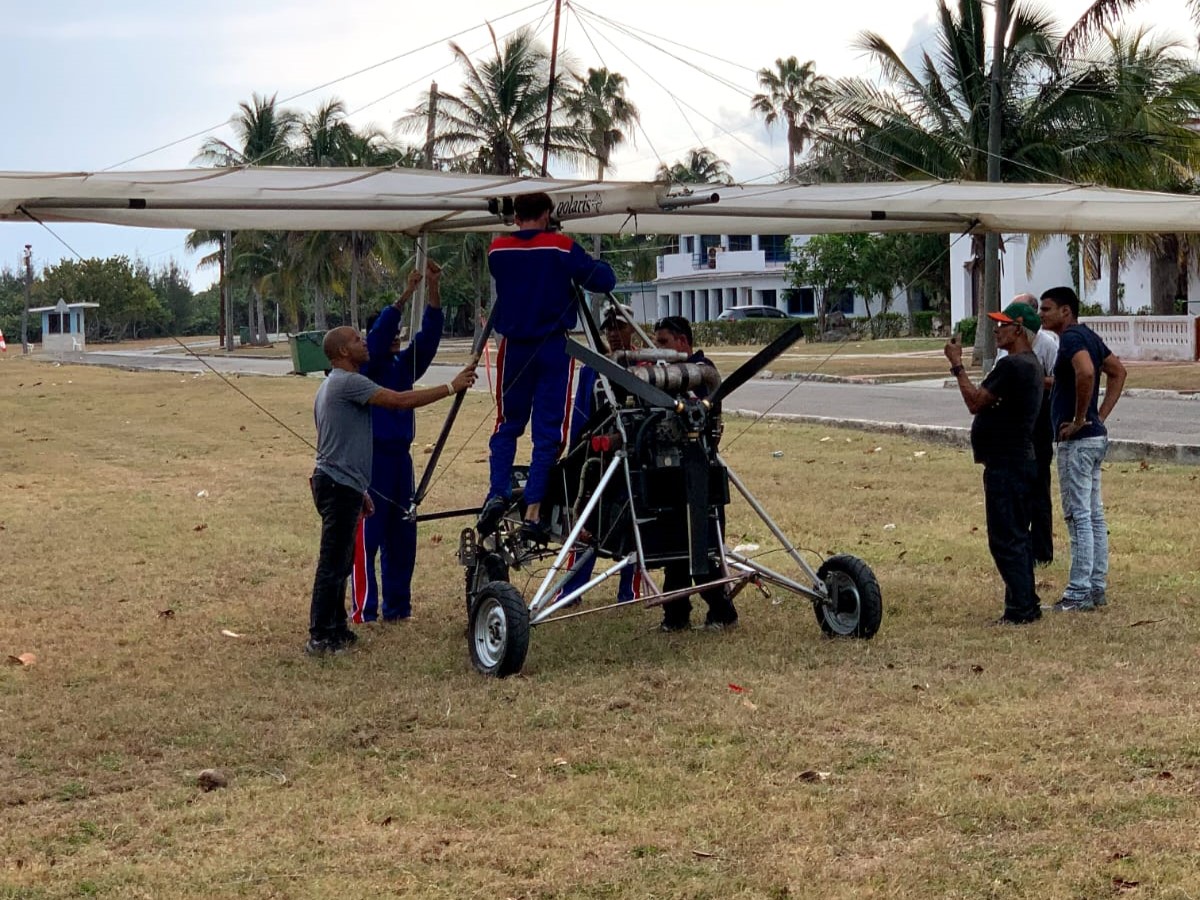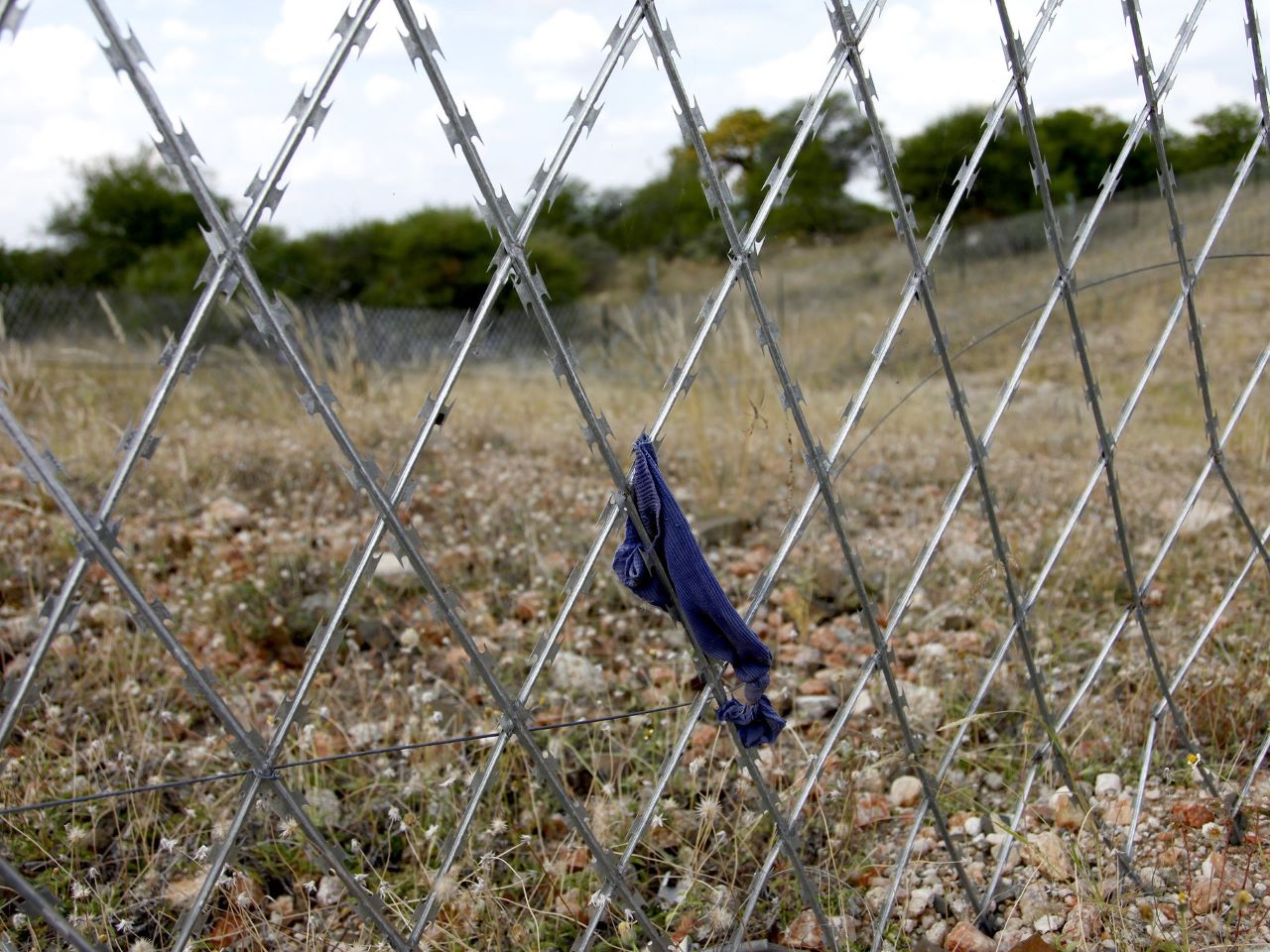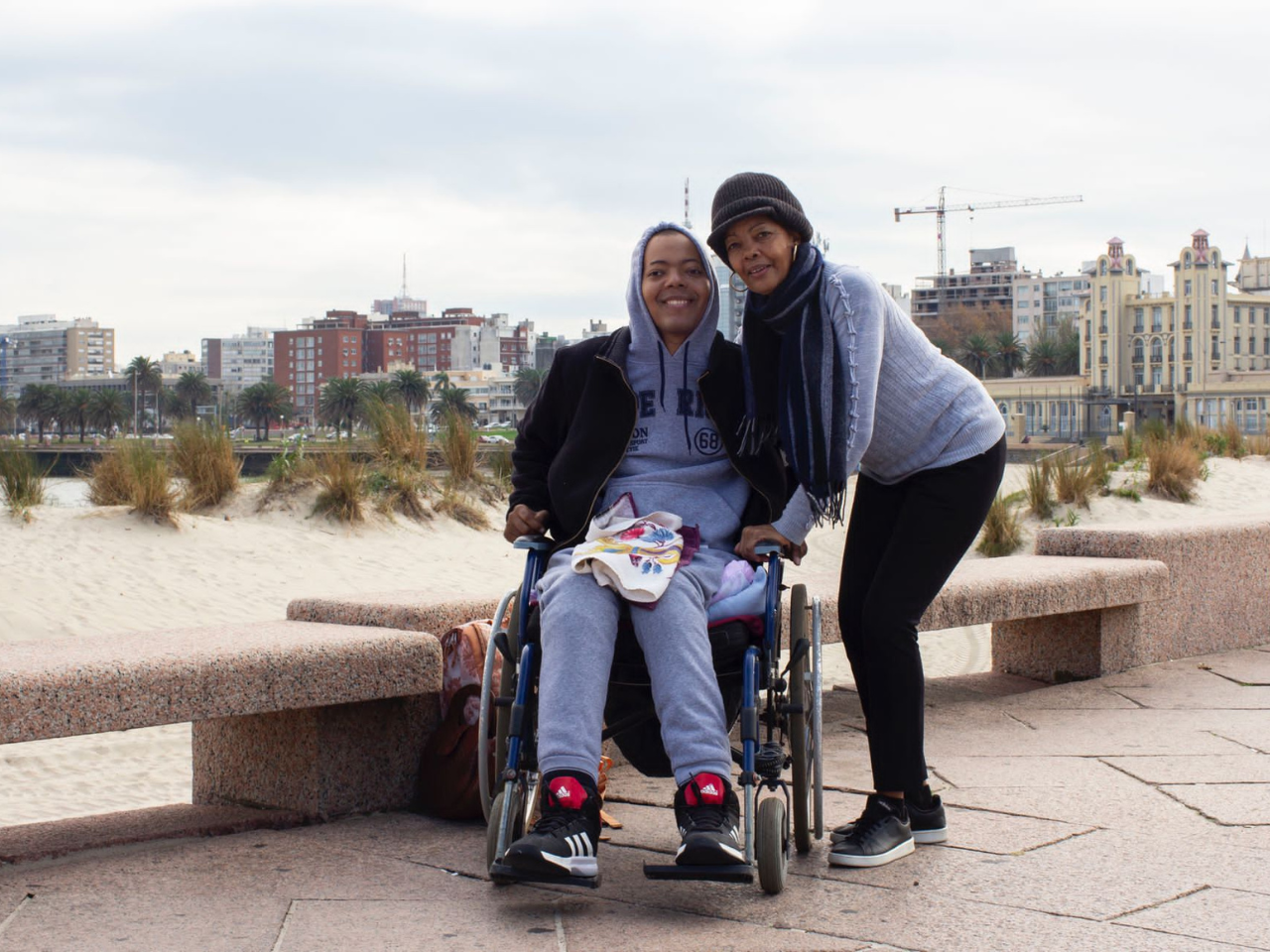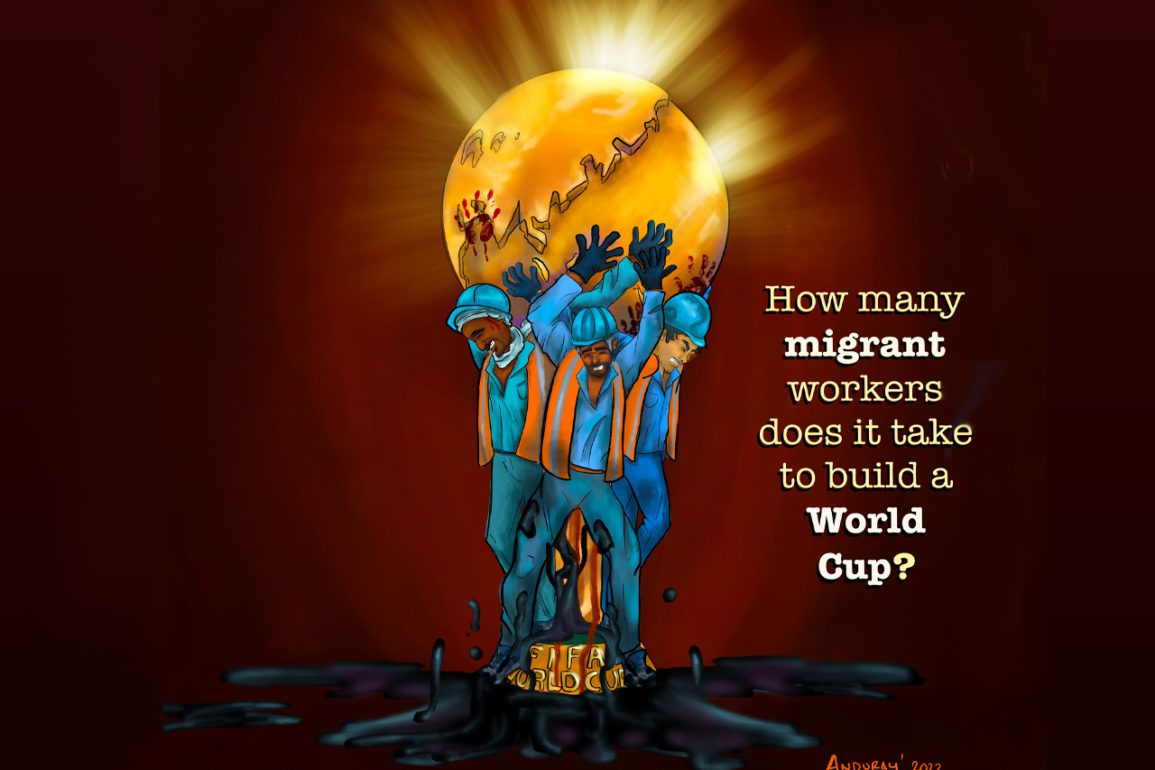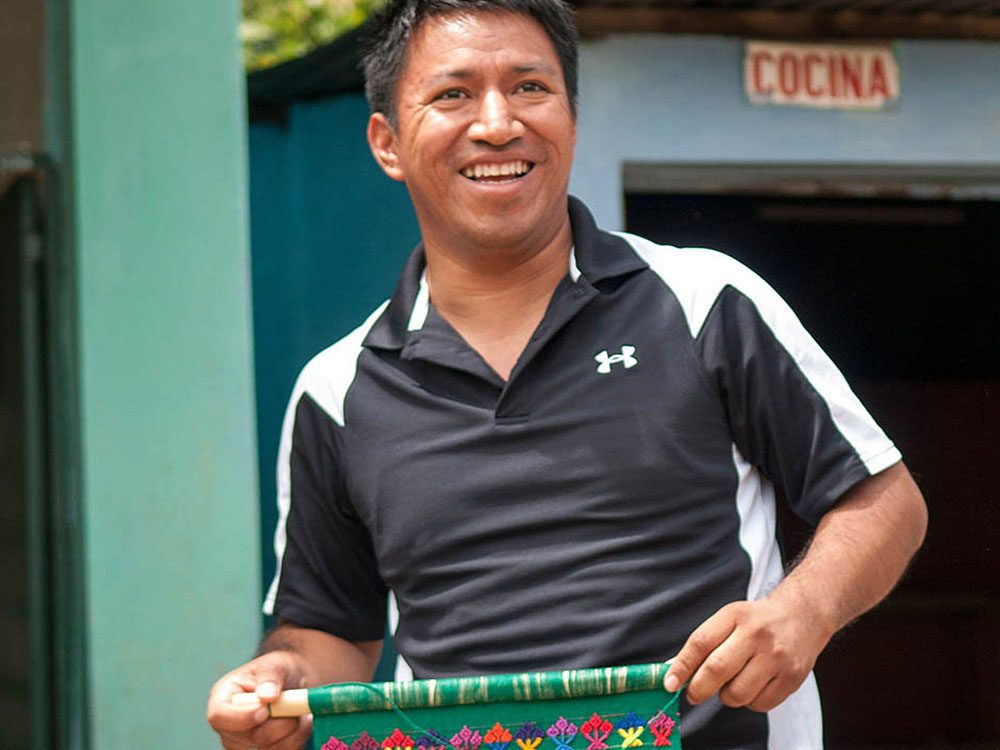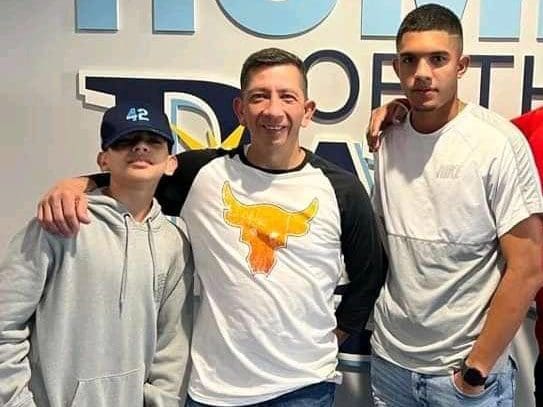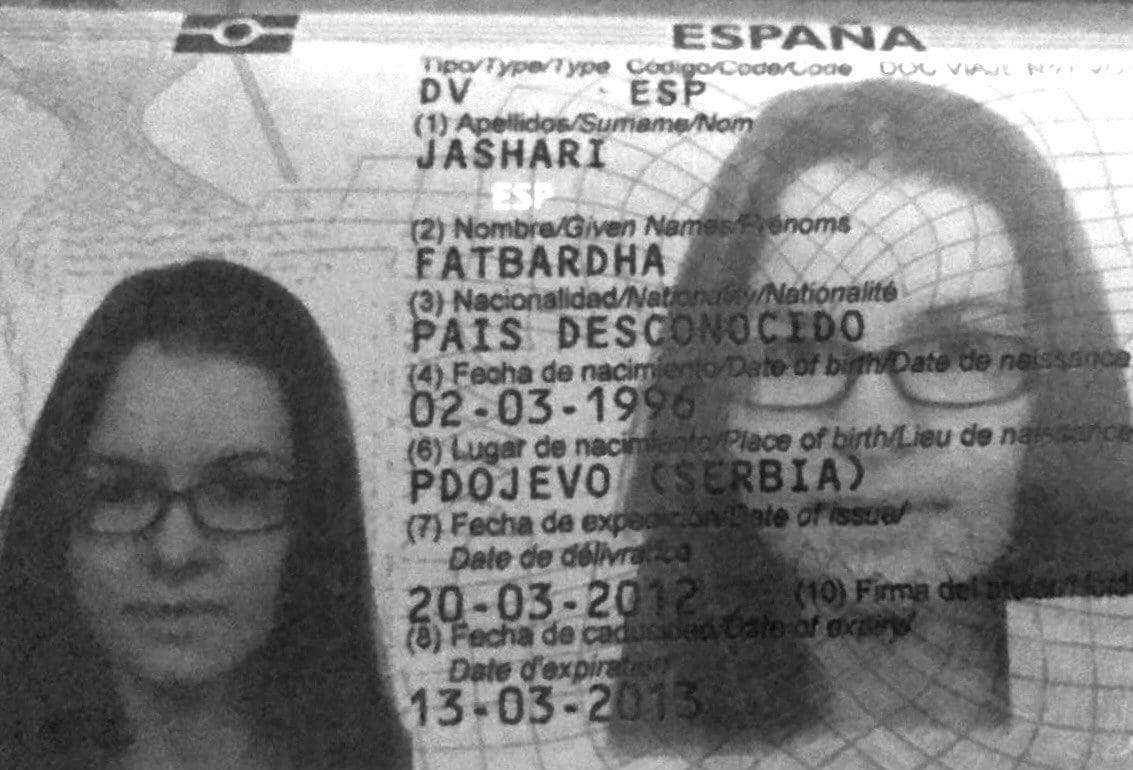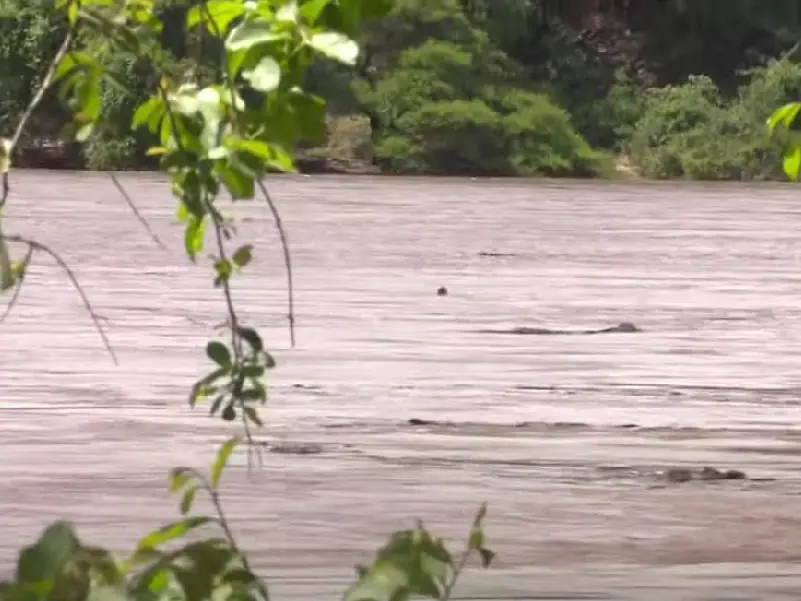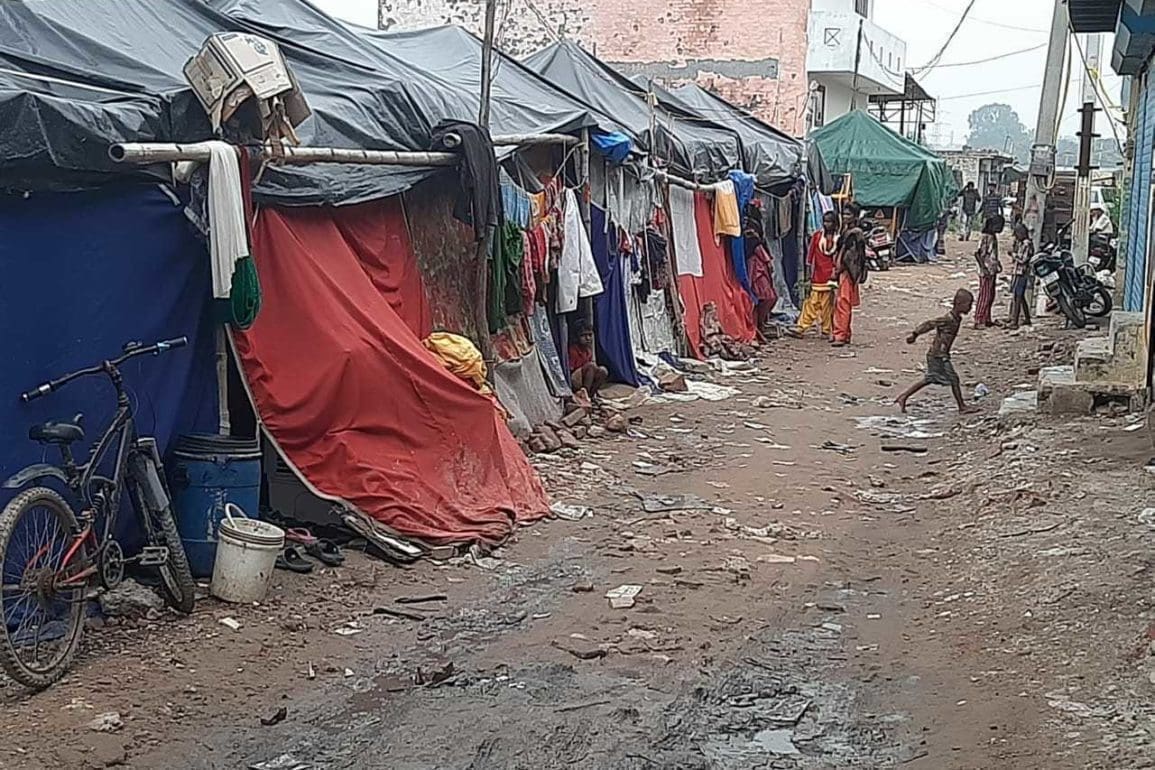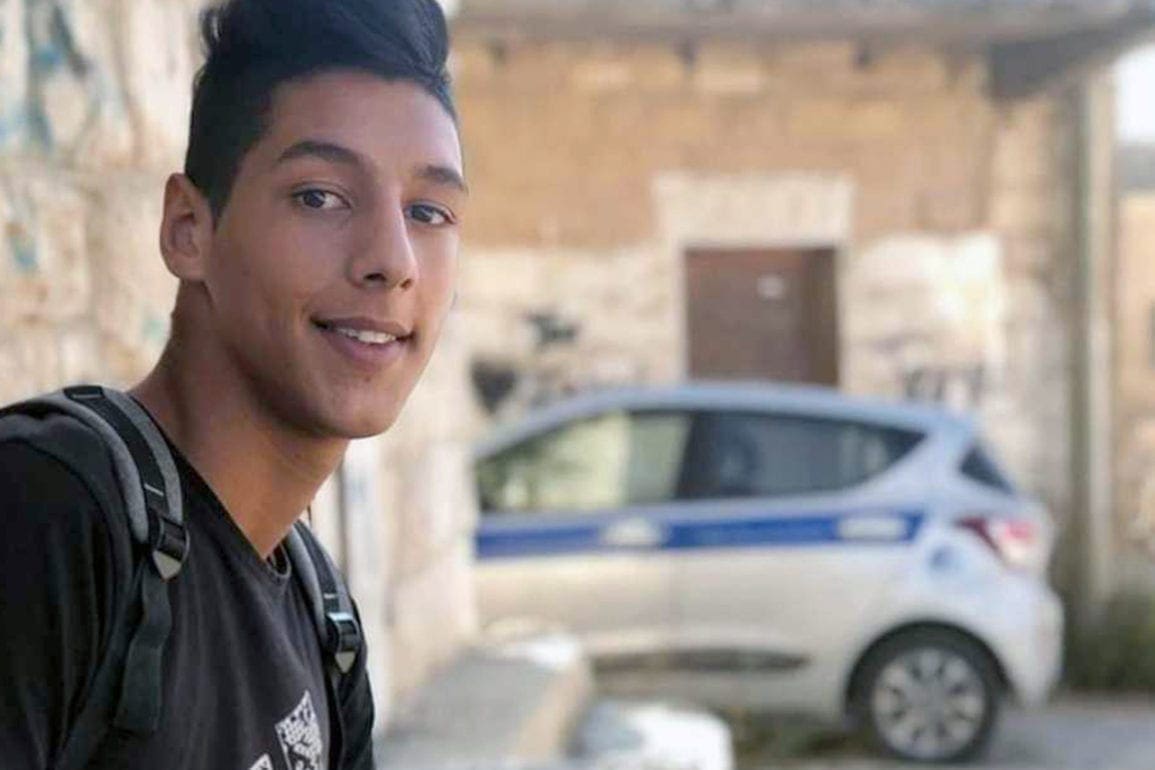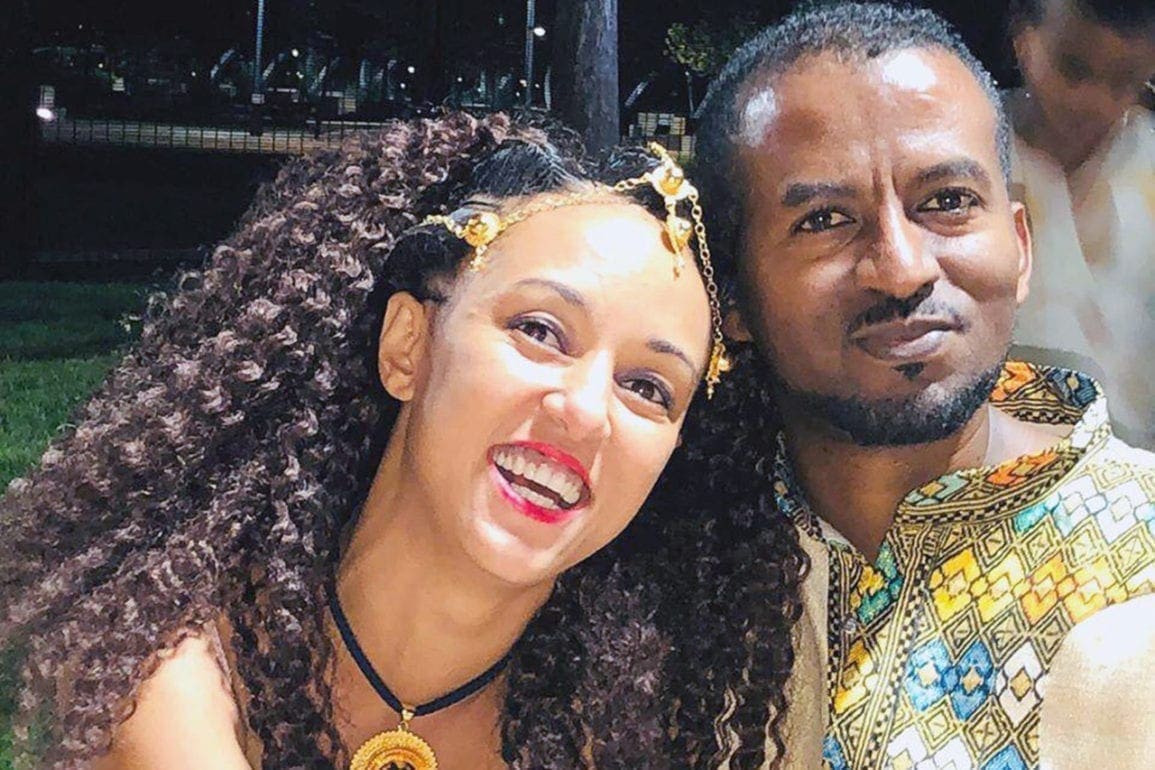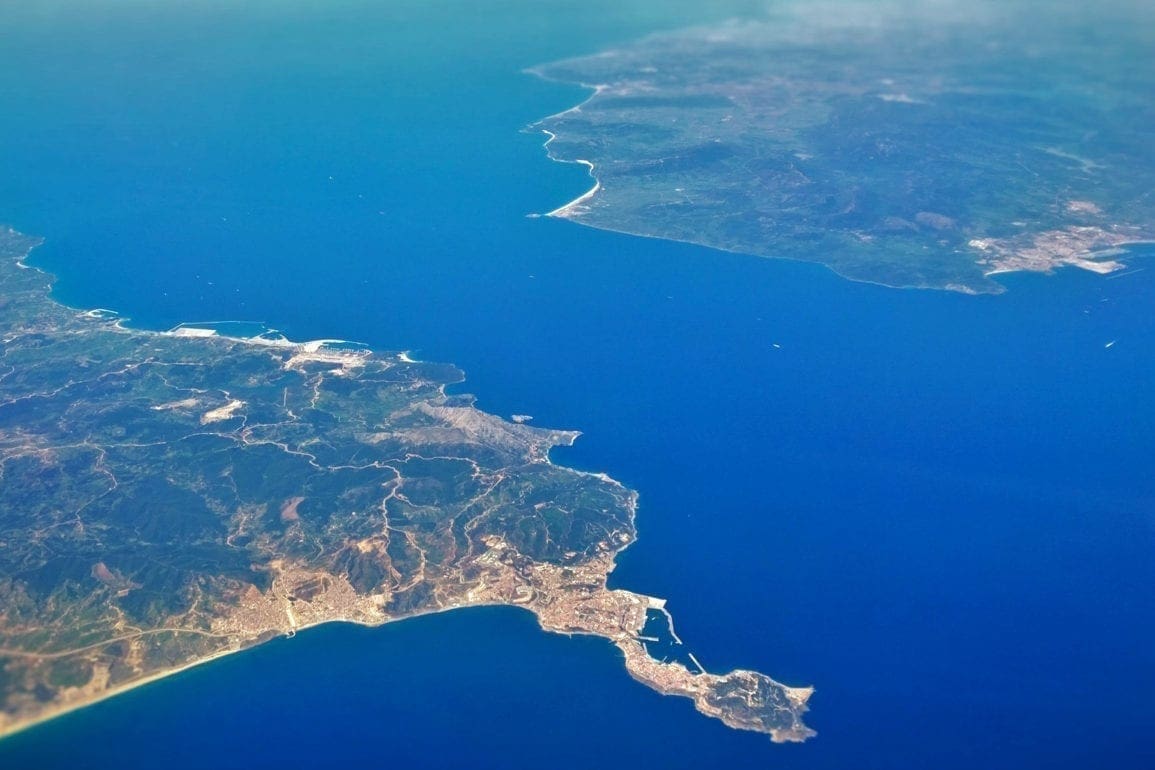Forced to be a child soldier for years, Sudanese refugee escapes to Italy, becomes international activist
The strange men tied me up with a group of young boys as we all cried. The soldiers did not understand our languages and no matter how much I shouted; they kept hitting me. The men marched us into the forest in Congo. The scars on my hands from that day remain visible, even now. Captive in the dark forest, I turned 13 years old.
- 2 years ago
July 31, 2024
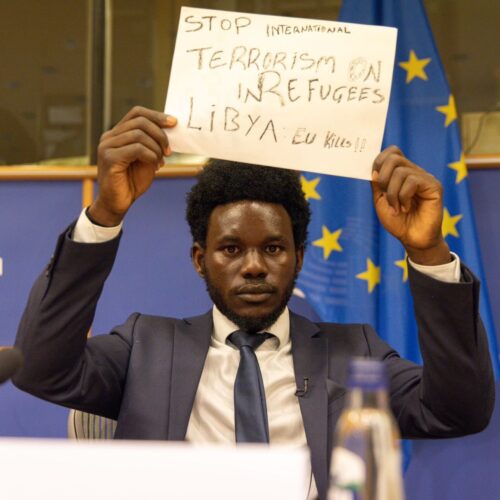
ITALY ꟷ Growing up in the Central African Republic (CAR) as a refugee, I witnessed unimaginable horrors. At a young age, fighters under Joseph Kony [a Ugandan militant and warlord who founded the Lord’s Resistance Army] took me and I became a child soldier.
After a daring and dangerous escape, I landed in the hands of human traffickers in Libya. I traversed dark forests, raging oceans, and the unforgiving Sahara Desert to find freedom and a better life. Today, I fight to help others stuck in the life I escaped.
After years as a refugee, family returns to Sudan, young boy finally goes to school
At two months old, my family fled Sudan for the Congo and a year later, for the Central African Republic. Alongside thousands of refugees, we lived in harsh conditions, never having enough food or access to healthcare and education. Our fate depended upon donations from NGOs and others.
When the parties – at war for 21 years – signed a comprehensive peace agreement, we returned to South Sudan. Life became stable and peaceful at last. In South Sudan, I came to know my birth country and finally felt a sense of belonging. Families began cultivating land, hunting, and rearing animals.
For the first time in my life, I went to school. At eight years old, I felt incredible excitement to develop and learn. My family began to dream again, but this wonderful experience became short-lived. Four years later, tragedy struck.
One sad day in August 2009, the Lord’s Resistance Army (LRA), a rebel group from Uganda known as the “Tonga Tonga” in my language, captured me. Led by Joseph Rao Kony, the group maintained a presence, fighting the Ugandan government for years. In no time, they arrived in South Sudan. Since 2008, they terrorized most of my community, and eventually, they reached us.
At the Saturday market near the borders of Congo, South Sudan, and central Africa, I enjoyed the day with my siblings and parents. People from neighboring countries exchanged goods and sold products. My job that day was to help carry a gallon of palm oil.
Suddenly, we heard gunshots and people shouting in different languages. In the market, chaos erupted as people ran up and down. I lost sight of my parents and found myself in the hands of scary looking men. Covered in dirt with bushy hair, they carried and wore weapons.
Captured as 12, Sudanese boy spends entire childhood witnessing raids, rapes, and brutal murders
The strange men tied me up with a group of young boys as we all cried. The soldiers did not understand our languages and no matter how much I shouted; they kept hitting me. The men marched us into the forest in Congo. The scars on my hands from that day remain visible, even now. Captive in the dark forest, I turned 13 years old.
I spent the rest of my childhood in that place, away from family, and witnessed killings and other horrors. In that place, they stripped us of any feelings of our own; only what they commanded. Manipulated and absolutely subjugated, they forced us to do things. We watched as the executed people from nearby villages, chopping off their heads with axes, machetes, or knives. They used wooden sticks covered in nails or guns to murder.
The soldiers began adding powder to our foods. They intended for the drugs to make us bloodthirsty young children. Meanwhile, the raping began. It meant nothing to these people. The commanders in the army took the women, while the low-ranking officers feasted on the young boys. They took us along on raids of villages, markets, and churches, in search of food and medicine. I knew those raids indicated the death penalty for the citizens involved. I watched as religious places burned to the ground and followed instructions, to carry the spoils back into the bush.
The LRA tried to make us believe in magic and witchcraft. “You will never die,” they told us. “You wear invisible bullet proof armor.” I knew they lied. I saw many soldiers of the LRA killed when the Ugandan People’s Defense Force began hunting them down.
The LRA murdered those who attempted to escape, but I fled anyway
As child soldiers, we bonded predominantly around nationality and language. The tribe I came from originates in Central Africa, Congo, and South Sudan. I maintained a close relationship with the Congolese people because most came from my tribe and spoke my language. I also got to know some Ugandans who spoke English.
Sadly, the LRA killed many of my friends who could not achieve the tasks assigned them. I became separated from others in Central Africa, as we faced various predicaments. Their names run through my mind: Jackson, Maria, and Sable. When not intoxicated by drugs, we spoke to each other in our right minds. We longed for our communities and wished to see our families again. I thought of my mother and the pain she must have felt, having lost me.
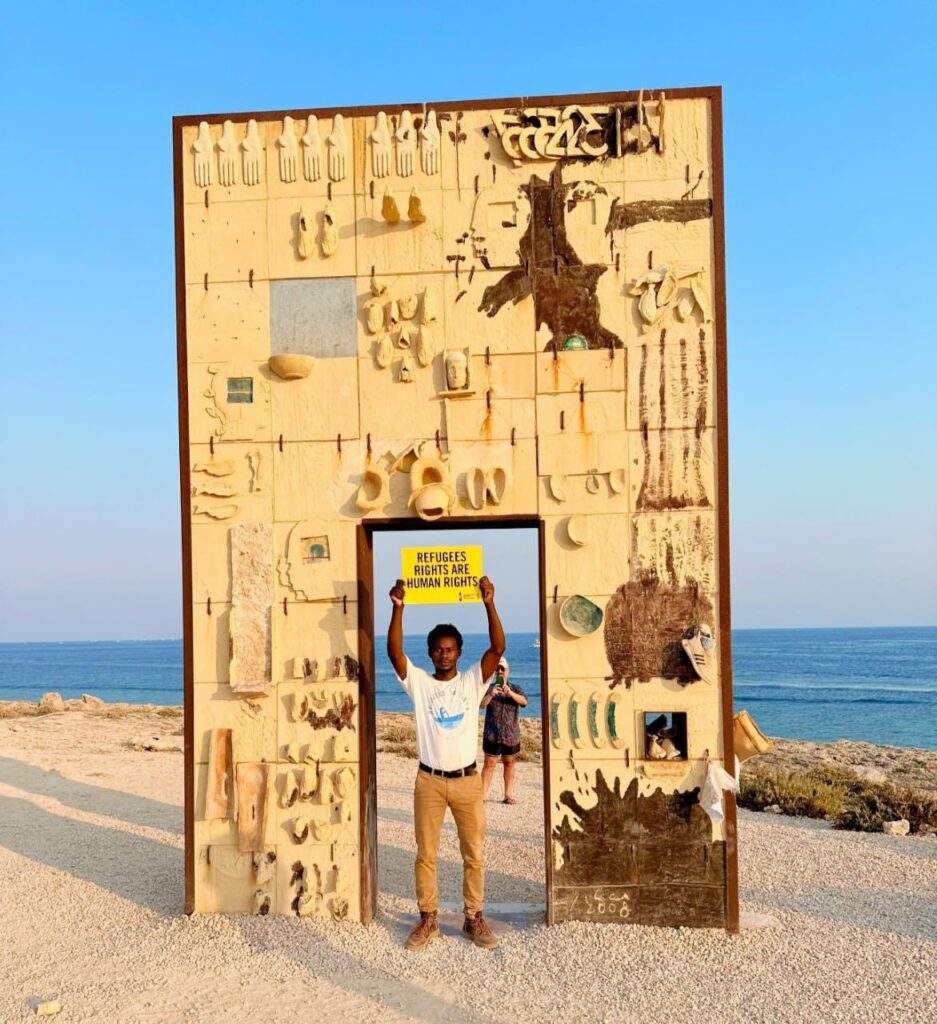
None of us wanted to stay, and reflected on our dreams and the life we would likely never live. The soldiers terrorized us making us witness to the killing of those who dared to try and escape. Yet, one day, we took the risk. Maurige, Jackson, One, and I spent days planning our escape. I took up the task of watching for advancing military forces and suspicious movements. Using walkie talkies, I informed them of problems.
My group viewed me as an asset. I became excellent at using devices and reading instructions written in English. One ordinary night, we snuck out and made a run for it. Close to a nearby village in central Africa, we endured the thick, dark, unforgiving forest. We carried weapons and torches, and when the torches stopped working, we made fire using gum from the trees. When the LRA discovered our absence, they began pursuing us.
Reunited with family after years in the forest, young man’s mother never gives up
Gunshots rang out behind us as we ran. At the river, the high tide threatened to stop us, but waiting was not an option. Exhausted and hungry, we dropped our weapons and braved the water. After three days on the run, we finally made it to a village in the Central African Republic. The community there took us to the military to tell our story.
Sharing a common language, we found ourselves able to communicate and the military transported us to the United Nations Peacekeeping Forces and Uganda Peoples’ Defense Forces. With their help, we went to an American base. Thoughts of seeing my family again raced through my mind.
The UN and UPDF announced our arrival over the radio and parents in a displaced person’s camp heard about our escape. My family had moved on from the camp, but we were reunited at the military airport in Zara County, South Sudan The day remains forever etched in my memory, evoking intense emotions. When I saw their faces, we all cried.
Integrating back into society proved difficult. Having been gone for so long, I struggled to see people as “my type” anymore. I often stayed away and alone. My mother, however, came to me. She helped me manage my trauma until I became better. Resuming my studies, I began to dream again, until another war broke out in 2013. I found myself back in danger.
The government began conscripting young people into the military and for three years I resisted. When the pressure became too intense, I fled. My family, now persecuted for refusing to send their young boys to fight, ran as well.
In Nigeria, former child soldier experiences an attack by the terrorist group Boko Karam
From Northern Sudan to the Republic of Chad, I lived in camps for displaced people under harsh conditions. In my quest for an education and a better life, I left for Nigeria through Cameroon. I hoped to find better opportunities in an English-speaking country. En route to my destination, the terrorist group Boko Karam attacked us in Borno.
[Boko Karam serves as an Islamist jihadist organization in northeastern Nigeria which made headlines for kidnapping large numbers of school children including girls.]
Trapped in the terror of the attack, we waited until the Nigerian military rescued us and went on to Lagos [Nigeria’s largest city], but the difficulties of life there proved too much. Back in Chad, I encountered the Idris Derby government initiating a bombing campaign against rebels, so I moved again, making my way to Libya by the end of 2018, where a new nightmare began.
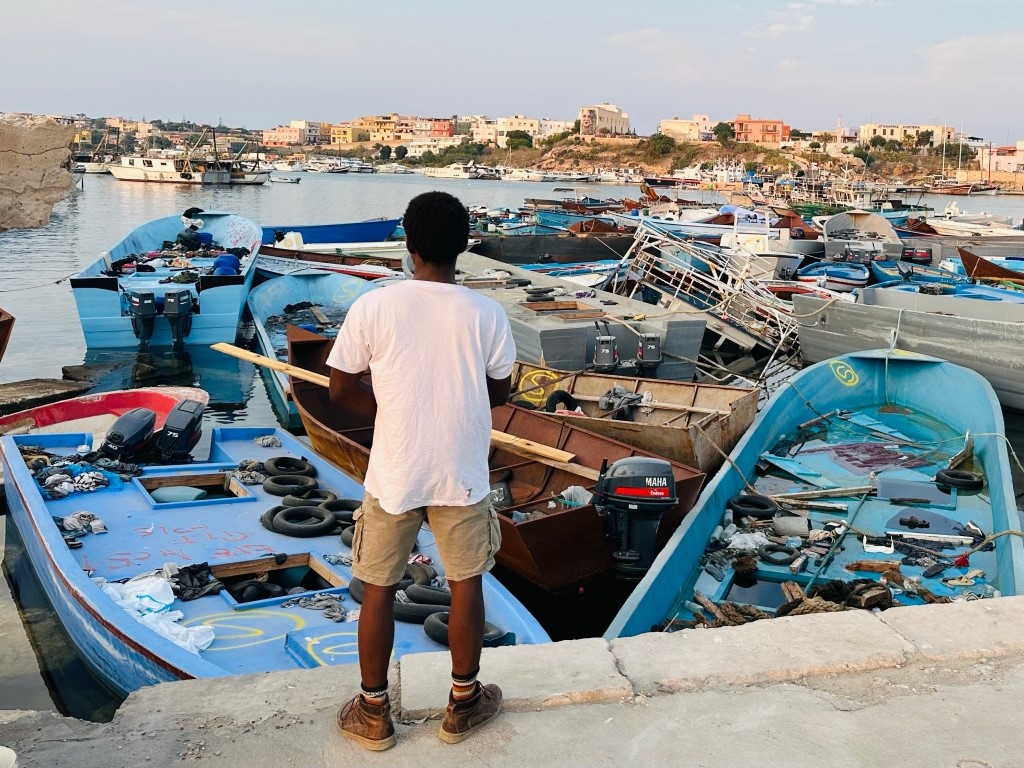
The Libyan militias captured the refugees and forced us into slave labor, using torture to exploit us. Within a few months, I attempted to escape at the Mediterranean Crossing but got arrested and returned. For seven more months, I endured abuse with no judicial review. Four times, I desperately tried to escape but nothing worked. Repeatedly facing the same sick cycle of violence, I began to speak out.
In the Libyan city of Tripoli, I used my voice to advocate for refugees, as attacks against us increased. At one point, they captured 5,000 people, rounded us up, and placed us in the Al Mabani detention camp. I become one who escaped.
Refugees tortured in Libya find their voices, protests erupt
At the United Nations headquarters in Tripoli I reported the incidences, but the UN issued no statements at that time, on social media or to the Libyan government. Angered, I felt compelled to begin my campaign. Outside, I saw hundreds of desperate women, men, and children trying to run away from the unlawful and violent arrests.
We needed to come together and organize; to change the narrative and advocate for ourselves. The refugees needed to be recognized to end the dehumanization of migrants, and to evacuate those who wanted to return to their countries. Libya claimed it did not want us, but when we attempted to escape they captured and returned us.
Speaking directly to the Libyan population, we spoke of our plight and began building bridges across the Mediterranean with the European Civil Society. No human being willingly leaves loved ones behind to traverse the desert or take a small rubber dingy across a raging ocean for the fun of it. We wanted those who committed crimes against us to be held accountable. They needed to face the rape of women, the killings, and the other inhumane crimes.
We sought to educate the EU; to show how the financial support from European politicians exacerbated these barbaric acts. By providing money to Libyan militias and the private sector, the European commission essentially sponsored the capture of people at gunpoint and their return to the horrors in Libya.
In addition, we advocated for the closure of the detention center and a safe migratory path for those who fled wars in their home countries. We asked for shelter, not necessarily in Europe, but even in Africa. Our please were met with silence because we never mattered. The refugees in Libya protested for 100 days, though it felt like 1,000.
Sudanese man becomes face of demonstrations in Libya, falls under threat
For three months and 10 days we took to the streets – children, young adults, the elderly, the sick, and the hungry. We represented 11 nationalities. One night during the protests, shots erupted during a violent eviction. I looked on as the Sudan community leader Majid sustained injuries, but he survived.
The following day, my picture spread all over Libya’s national television station and on the streets. Wanted as a criminal for speaking out, I went into hiding. Now deemed a security threat to the county, the internal security services searched me out. The moment felt more challenging to me than anything I endured before.
Under the Italian constitution, they recognize human rights defenders, but the Italian Embassy denied my application for a humanitarian visa, nonetheless. Attempts to apply to Germany and even working with a European lawyer failed. Day after day, my life declined and I knew, if I waited any longer, I would die in Libya.
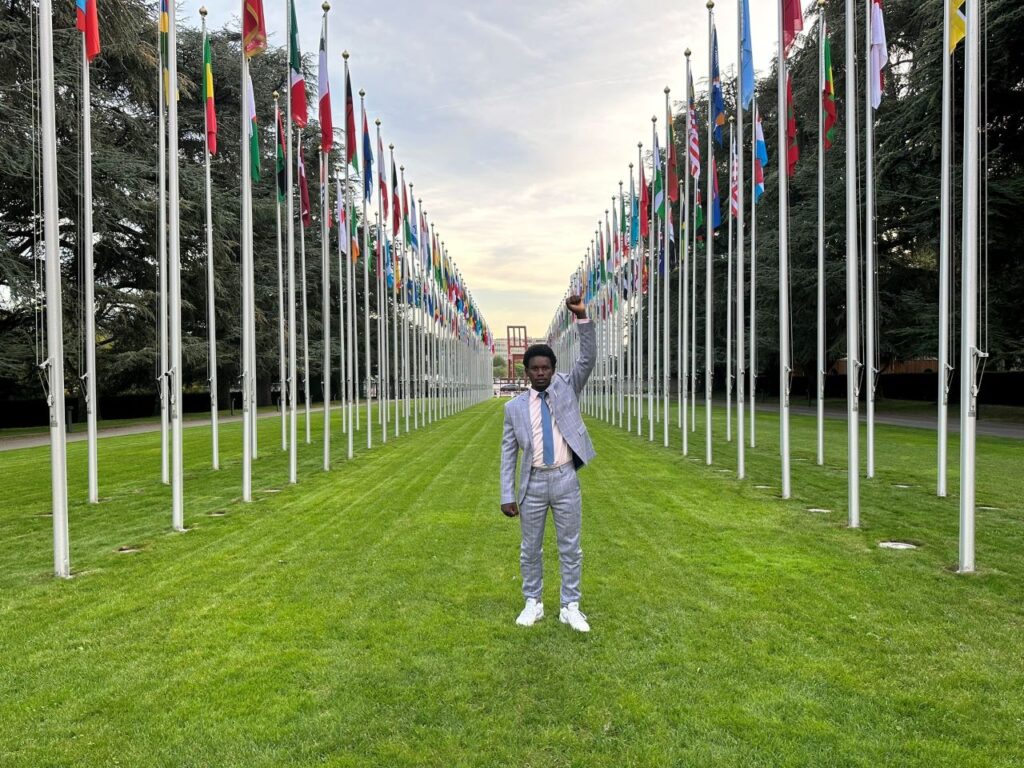
Death did not concern me. I cared more about the movement and the lives of the refugees who depended on our campaigns. So, in a final attempt – as the active face of our movement and with numerous members already imprisoned – I climbed on another dingy to cross the Mediterranean Sea. Through some miracle, I made it to Italy.
I feel immensely grateful to be in a country where I found safety and hope, but I will not rest. Regularly, I continue to demonstrate for those left behind and new people arriving in Libya, unaware of the danger. Connecting NGOs, lawyers, journalists, media, and universities – we are building a network. In Brussels and across several European cities, we take our campaign to the Italian and EU parliaments.
Man turns his attention to changing systems, finally hears from his family after years apart
Thanks to a year-long campaign in Europe, on January 10, 2024, over 600 people rounded up and detained in Libya achieved freedom. Now, our human rights defender evacuation campaign seeks to support those released but still tuck in Tripoli.
Challenging the United Nations to advocate, we see refugees being evacuated through the human rights corridor. An alarming number of our brothers and sisters lose their lives in the desert and the Mediterranean Sea every day. These are humans just like us.
Twice as I fled Libya, the boat capsized, and hundreds of people died as I watched the horror. I faced, and they continue to face, the hopeless cycle of drowning or returning to Libya. It feels unacceptable to me that, in 2024, humans must endure these desperate routes to find food, water, education, shelter, and some form of peace.
Meanwhile, we see a landscape where some politicians push fascist ideologies that hurt immigrants, devaluing their very lives and positive contributions to society. I hope for a world where people no longer face forceful migration from their homes and communities; where Africans can move to nations legally like Europeans can.
I dream of the disappearance of these bureaucratic hurdles, and that healthy migration policies will become institutionalized. For this, I will continue to fight. Meanwhile, in Europe, I tried to find my family. Several years ago, I lost contact with them, thinking they died. Thanks to social media and extensive research, I found them. Out of my big family of 28 people, some went to South Sudan and some went to Congo.
Finally hearing their voices brought me immense joy. We long to see each other but I cannot return to South Sudan, nor can they come to Europe. We go on, longing for one another. My greatest wish is that one day, I will save the money necessary to travel to a neighboring country where we can reconnect. I hold onto hope of seeing my father, mother, and siblings one day.

